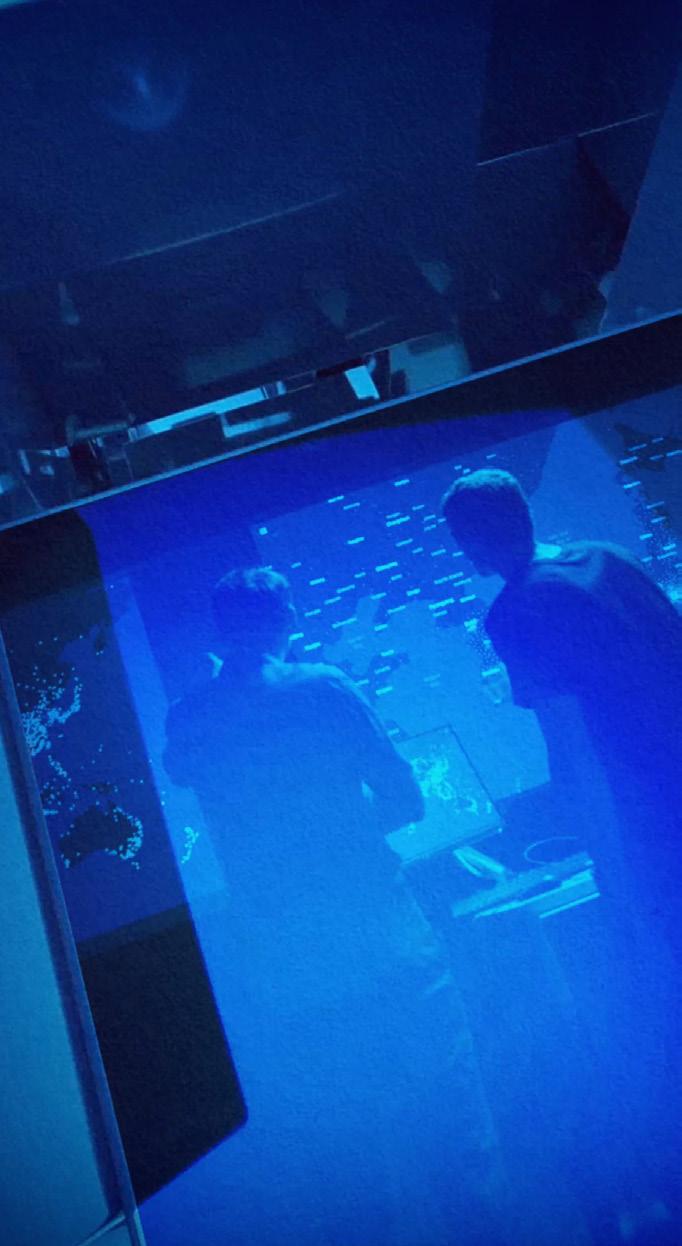www.monash.edu/business/impact-labs



www.monash.edu/business/impact-labs


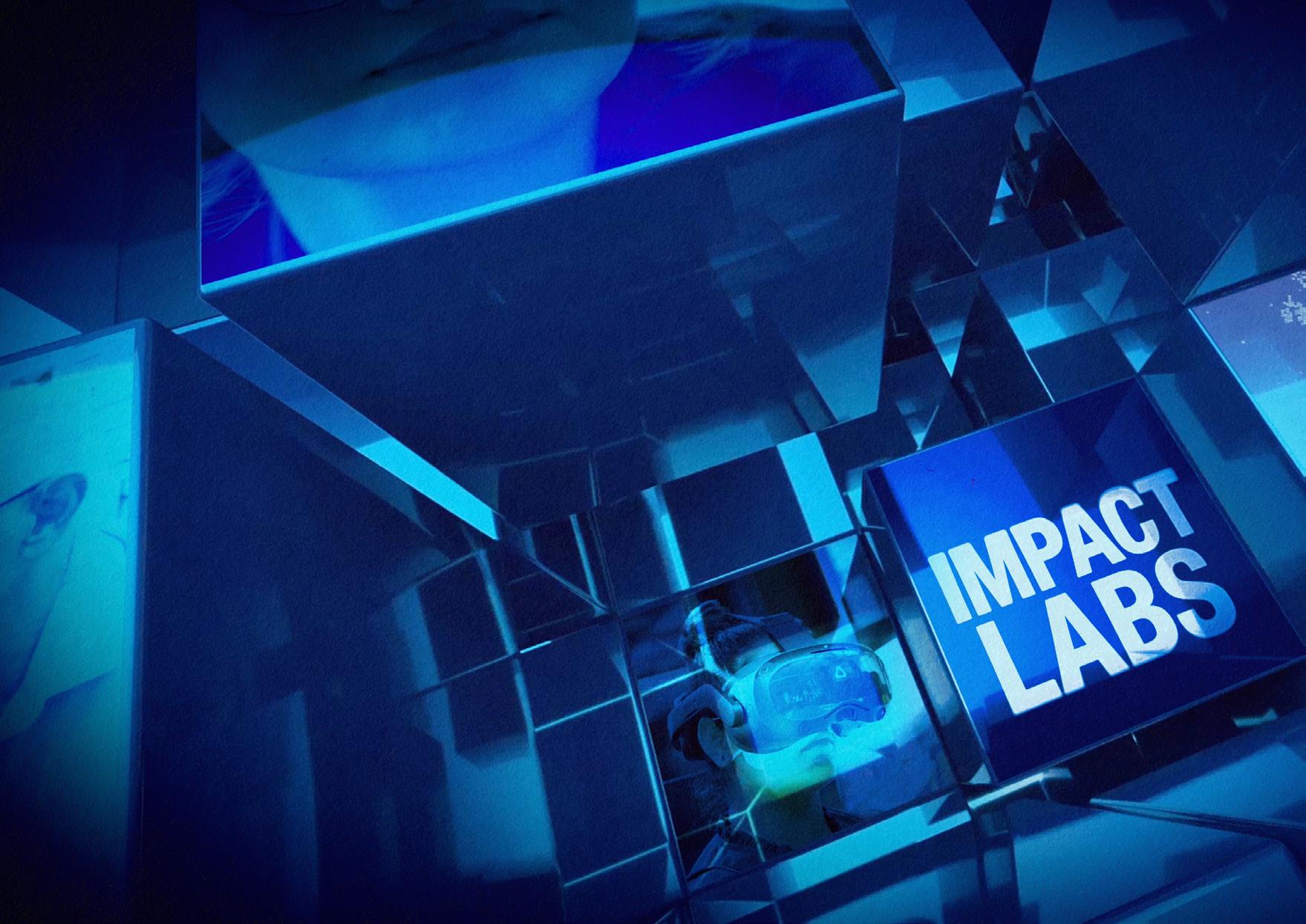
Impact Labs is an interdisciplinary collaborative research platform. Our six labs serve as hubs for collaboration, knowledge exchange and practical solutions, driving meaningful and lasting impact across communities and industries.
Impact Labs is Monash Business School’s major interdisciplinary vehicle for external outreach and impact, consistent with Monash University’s Strategic Plan, Monash Impact 2030.
2024 has been a fantastic year for Impact Labs. Highlights included the launch of the Energy Lab white paper, The Storage Imperative: Powering Australia’s Clean Energy Transition; and the establishment of the Monash Nature Positive Network, to which Green Lab has been a major contributor. Both initiatives are central to addressing Australia’s net zero and nature positive clean energy transition.
Impact Labs is fundamentally about building external partnerships. This year, we deepened our relationships with partners as diverse as the Business Council of Co-operatives and Mutuals (BCCM) through the Mutual Value Lab (MVL); The One Box (again through the MVL); Paul Ramsay Foundation; the Office of the United Nations High Commissioner for Human Rights (SoDa Labs); and Australian Energy Market Commission (Energy Lab). We have also welcomed new partners, Amazon and New Aim, Australia’s largest and fastestgrowing private e-commerce provider, on innovative projects with Digital Lab.
One particularly exciting development this year is the genesis of collaboration on projects across labs. One such project is a collaborative initiative between Digital Lab and Mutual Value Lab in the Cooperative and Mutual Enterprises sector, which has led to a landmark recommendation in the ACCC’s Supermarket Inquiry final report in relation to the role of co-operatives in the grocery retail sector. More collaborations of this type are planned for next year.
In 2025, we have several things planned. First is the establishment of the FinTech Lab, which is innovative in two ways: it is our first cross-faculty Impact Lab (jointly with Monash University’s Faculty of Information Technology), and it is cross-campus with Monash University Malaysia. We are already talking about having one or two spin-offs from the FinTech Lab with industry in Malaysia, possibly in collaboration with Monash AI Institute. Second, we hope to realise our commercialisation aspirations for important initiatives that our
labs have been working on through this year; notably, Astro (SoDa Labs) and VR-ELOVATE (Opportunity Tech Lab). Last but not least, the IP Observatory will get a physical presence at Clayton campus. This will help enormously in demonstrating its capabilities to external stakeholders.
I thank each of the lab directors for their immense commitment throughout the year, and especially Manager, Research Development and Partnerships, Sharon Aburn and Impact Labs Coordinator, Shahab Sazegar, for ensuring everything runs so smoothly.

Russell
Deputy Dean, Research Monash Business School

Is a leading research and policy hub focused on digital markets, competition policy, platform design, and data and privacy. It brings together researchers and industry to explore how digital technologies are reshaping markets, regulation, and the broader economy.
See page 9

Collaborates with industry and government to enhance research and policy impact in areas including competition policy, market design, and energy transition financing. See page 11.

Is a hub for social impact measurement and evaluation, with a focus on social business models (i.e. co-operative and mutual enterprises, and social enterprises). MVL develops insights on the value and impact of these organisational models for stakeholders and communities. See page 15

Advises on emerging and equitable digital technologies. OTL innovates digital solutions and co-designs inclusion strategies to enhance productivity, diversity, and inclusion. See page 17.

Is an interdisciplinary research hub for climate change and sustainability that fosters collaborations between experts in economics, finance, and law, and engagement with government and industry partners. See page 13

Delivers insights for business, government and not-for-profit organisations by combining AI, machine learning, causal inference and data science methods with large and alternative data sources such as satellite imagery, text-as-data and digital footprint data.
See page 20.
Launching in 2025, the FinTech Lab envisions becoming a global leader in financial technology research. The Lab will draw on a diverse range of expertise, including blockchain technology, financial innovation, regulatory compliance, and digital ethics.
In 2024, Impact Labs was supported by a team of over 30 staff, including researchers, adjuncts, professional staff, and research assistants, alongside more than 200 members who contribute across multiple disciplines.
Our leadership team provides strategic direction and support for the Impact Labs.

Professor Russell Smyth Deputy Dean, Research

Associate Professor Paul Thambar Director, Mutual Value Lab

Sharon Aburn Manager, Research Development and Partnerships

Associate Professor Chengsi Wang Director, Digital Lab

Professor Charmine Härtel Director, Opportunity Tech Lab

Shahab Sazegar Impact Labs Coordinator

Shreejan Pandey Convenor, Energy Lab

Professor Paul Raschky Co-director, SoDa Labs


Associate Professor Anita Foerster Director, Green Lab
Professor Simon Angus Co-director, SoDa Labs
Associate Professor Guillaume Roger Energy Lab
Professor Frank Wolak
Energy Lab (until December 2024)
Dr Sergei Balakin
Research Fellow, Energy Lab
Dr Christian Dueben, Research Fellow, SoDa Labs (since September 2024)
Dr Nawaaz Khalfan
Research Fellow, Energy Lab
Dr Lars Kooijman
Research Fellow, Opportunity Tech Lab
Dr David Kreitmeir, Research Fellow, SoDa Labs (until June 2024)
Dr Lachlan O’Neill
Research Fellow, SoDa Labs
Our researchers and adjuncts bring diverse perspectives, contributing their expertise across multiple disciplines to deliver real-world impact.1 1
Dr Ningyi Sun, Research Fellow, Energy Lab (until April 2024)
Ella Vines
Research Fellow, Green Lab
Dr Lukas Wellner
Research Fellow, SoDa Labs
Liyan Zhang
Research Fellow, Mutual Value Lab
Jonathan Jolie
Software Developer, Opportunity Tech Lab
Adjunct Associate Professor (Research)
Darryl Biggar, Energy Lab
Adjunct Professor (Research)
Phil Hayes Brown, Opportunity Tech Lab
Adjunct Research Fellow Mariana Carvalho
SoDa Labs
Adjunct Senior Research Fellow
Penny Mealy, SoDa Labs
Adjunct Associate Professor (Research)
Paul McIntosh, Opportunity Tech Lab
Adjunct Associate Professor (Research) Andrew Rendall, Energy Lab
Adjunct Associate Professor (Research)
Irwyn Shepherd, Opportunity Tech Lab
Adjunct Senior Research Fellow
Michael Spencer, Green Lab
Impact Labs has a diverse network of members and affiliates across the labs who contribute to research and projects with expertise spanning multiple disciplines.
Impact Labs partner with business and policymakers to co-design solutions to global economic, environmental and societal challenges.
Our partners include government agencies, local industry and business, not-for-profit organisations and major international companies.
• Tailored expertise: Customised collaborations through co-designed research, innovation, or tailored educational programs.
• Knowledge sharing: Events fostering cross-disciplinary insights.
• Amplified impact: Combining Monash researchers’ expertise with industry knowledge for practical, innovative outcomes.
• Sustainability focus: Partnerships targeting long-term environmental and social solutions.
• Innovative solutions: Development of commercial-ready solutions like VR-ELOVATE and Astro to address real-world needs.
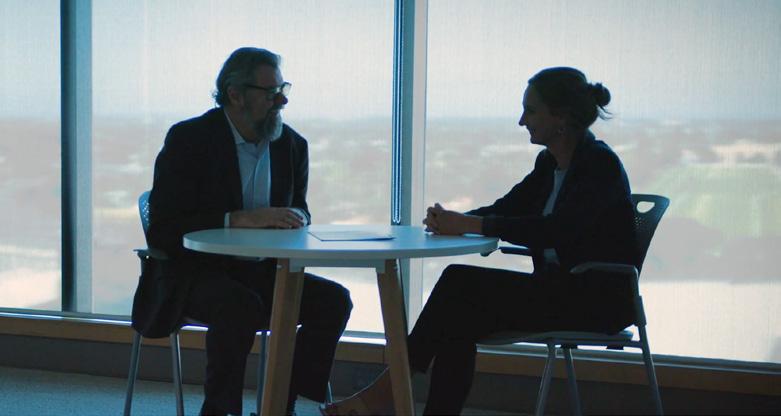
We believe in tailored solutions. This might include a co-designed research project, a program of seminars and workshops, a PhD student interning at your business, a corporate education program, or perhaps the development of a new digital tool or index.
For partnership inquiries, please contact:
Sharon Aburn Manager, Research Development and Partnerships
T: (03) 9903 4495
M: +61 0447 930 408
Email: sharon.aburn@monash.edu
Further information
Find out more about Impact Labs
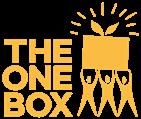
“Working in partnerships with a highly respected research institution such as Monash Business School has provided The One Box with increased credibility.
The independent research findings have made a tremendous impact in our ability to secure funding. Funders, rightly so, need to know the program is not only needed, and filling a gap, but that it makes an impact.
Since 2020, we have grown from supporting 1,300 families a year to now in 2025, working towards donating boxes to over 1,800 families each week.”
Emily Wild
Corporate Social Responsibility Manager, The One Box

In 2024, the Digital Lab strengthened its role as a leading research hub for digital markets, competition policy, and platform design. We deepened our collaborations with key government agencies, including the Australian Competition and Consumer Commission (ACCC) and the Productivity Commission, while expanding our industry partnerships with global and domestic leaders such as Amazon, New Aim (an e-commerce provider), and the Business Council of Co-operatives and Mutuals (BCCM). These partnerships reinforce our commitment to producing cutting-edge research with real-world impact.
Our focus on enhancing competition policy and regulatory frameworks in digital markets and optimising business-to-business (B2B) and business-to-many (B2M) platform design has helped establish the Digital Lab as a premier research and policy hub providing practical insights for policymakers and businesses in the Asia-Pacific region.
In addition to research, we actively foster a network of core partners and stakeholders, creating a platform for dynamic discussions and research-driven policy recommendations. This year, we strengthened international collaborations, particularly with the University of Southern California Marshall Initiative on Digital Competition, co-hosting an online panel on the regulation of digital markets in Australia. We also emphasised interdisciplinary perspectives by partnering with Monash University’s Faculty of Law to co-host 50 Years of Competition Law and Economics in Australia, a conference featuring top regulators and industry practitioners from legal and consulting sectors.
The Digital Lab continues to play a crucial role in shaping policy discussions by contributing expert insights to major ACCC inquiries, including the Digital Platform Services Inquiry and the Supermarket Inquiry. As we look to the future, we remain committed to driving impactful research, fostering collaboration, and shaping the evolving digital economy.

INDUSTRY
Partner organisation: Amazon
Monash University through Monash Business School and Amazon have partnered together to investigate competition issues in the technology industry. The project explores how merger policies influence the innovation strategies pursued by major tech firms and startups. Using game theory methodologies, the project analyses how different policy regimes shape market outcomes and innovation directions. The research report provides insights into startup acquisitions, innovation direction, and merger policy design. The findings are expected to support policymakers in designing merger controls that foster innovation, while addressing market power concerns.
Partner organisation: New Aim
The Digital Lab has partnered with New Aim to conduct an in-depth study on the business model and competitive advantages of digital B2B/B2M platforms. This research aims to provide small and medium-sized enterprises (SMEs) with valuable insights into the benefits and challenges of adopting these platform models.
Partner organisation: The Business Council of Co-operatives and Mutuals (BCCM)
In collaboration with the Mutual Value Lab, the Digital Lab partnered with the Business Council of Co-operatives and Mutuals (BCCM) to develop economic theory on the entry of community-owned firms into markets dominated by strong incumbents. The research explores how such entry can enhance competition compared to the entry of profit-maximising firms and proposes an empirical framework to quantify the resulting welfare gains. The findings have been invited for submission to the ACCC’s Supermarket Inquiry to inform its final report. This work highlights how co-operative models strengthen competition and benefit consumers, particularly in remote and regional areas where market competition is limited.
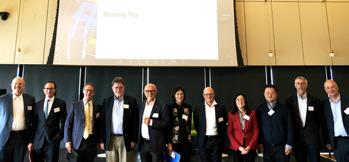
50 YEARS OF COMPETITION LAW AND ECONOMICS IN AUSTRALIA 14–15 November 2024
To mark the 50-year anniversary of the Trade Practices Act 1974, this conference explored current trends, reforms, and challenges in competition policy. Topics included digital market regulation and Australia’s new pre-merger notification regime for large acquisitions.



Featured participants included the Honourable Michael O’Bryan (Federal Court of Australia), Gina Cass-Gottlieb (ACCC Chair), Rod Sims and Allan Fels (former ACCC Chairs), and Stephen King (ACCC Commissioner) and Rhonda Smith (former ACCC Commissioner) as well as leading academics Professor Deborah Healey (UNSW), Professor Bill Kovacic (George Washington University) and Professor Martin Peitz (University of Mannheim).
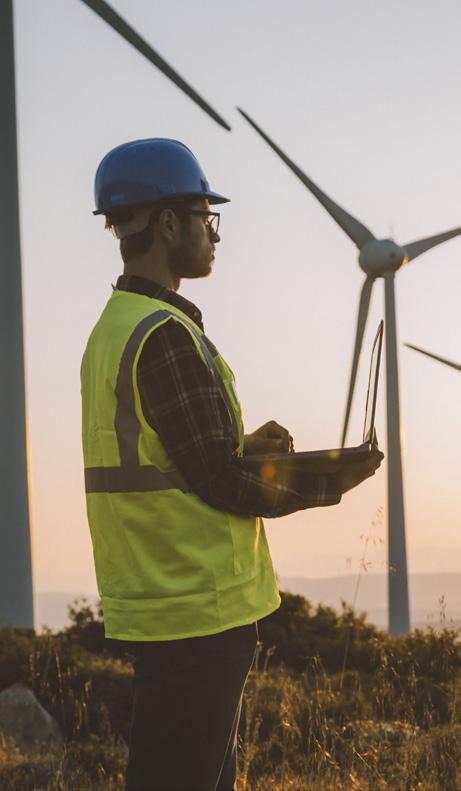
Realising Australia’s vision for a cheap, clean, and reliable energy system remains a challenge. Extreme weather events are causing power outages; communities are resisting new transmission projects; the market is not designed for new and distributed energy systems; and energy costs are rising. There is a critical shortage of skilled professionals to manage the transition. Universities play a vital role in addressing these complex issues through expertise and independent research. Energy Lab drives rigorous research, industry collaboration, and policy engagement to inform energy market design policy. We work closely with government agencies, industry leaders, and international experts to shape the future of market design, regulation and policy.
In 2024, we formalised our partnership with the Australian Energy Market Commission (AEMC) through a Memorandum of Understanding, the first of its kind between the AEMC and a University. We also completed the ARENAfunded study on storage and market design;
publicly released The Storage Imperative: Powering Australia’s Clean Energy Transition white paper; and held a series of highlevel industry and government briefings. Strengthening our global connections, the Energy Lab’s Dr Gordon Leslie and Stanford University’s Professor Frank Wolak co-hosted the “Market Design to Support a Low-Cost and Reliable Energy Transition” conference at Monash’s Prato Centre in Italy, bringing together global experts to examine market design priorities.
Looking ahead, in addition to continuing our research and engagement focused on wholeof-system market design, we seek to launch a professional training course on Energy Markets, Policy, and Regulation to rapidly upskill professionals entering this complex sector. This initiative will equip participants with essential skills to navigate policy, commercial, and regulatory challenges.
We welcome collaboration with policymakers, industry, and researchers to tackle the market design challenges of the energy transition.

INTEGRATING ENERGY STORAGE INTO THE NEM STUDY
Funding organisation: Australian Renewable Energy Agency (ARENA), Power Systems Consultants, Australian Energy Market Commission (AEMC)
The project, led by Associate Professor Guillaume Roger, investigated the economic challenges of incorporating energy storage into Australia’s National Electricity Market (NEM), investigating effective incentives and market behaviour for storage operators and investors. The research efforts and understanding of utility-scale storage market dynamics are crucial for market design efforts that aim to enhance renewable energy integration, address intermittency, and improve grid stability.
The project has produced several papers, including:
• The Storage Imperative: Powering Australia’s Clean Energy Transition
• Near-optimal Storage Strategies in Electricity Markets: This paper examines the essential role of electricity storage in the energy transition and its impact on market operations.
• Storage: Trading Strategies under Uncertainty: This white paper explores energy trading strategies using storage, arbitrage limitations in energy markets and the implications for market strategies and competition policies.
• Storage Games: This study analyses market dynamics with dominant players and volatile demand, focusing on how storage operators manage demand fluctuations and the potential for implicit collaboration.
• Storage Cycles: This paper studies the monopoly problem of a large-scale electricity storage that faces a periodic but uncertain demand over multiple cycles.



Type of partnership: Government
Informing policy design by facilitating joint knowledge exchange opportunities, research partnerships, translation of Monash research into white papers, and bilateral placement programs for Monash researchers and students at AEMC, and for AEMC staff at Monash.
This collaboration has strengthened ties between academia and industry to address key energy transition challenges.


“Monash has, in our view, been a very successful example of research cooperation. The work behind this white paper The Storage Imperative: PoweringAustralia’s Clean EnergyTransition will help us better understand how storage may behave in the market and feed into the wide mix of considerations for us and other policymakers.”
Anna Collyer Chair, Australian Energy Market Commission (AEMC)

LAUNCH OF WHITE PAPER THE STORAGE IMPERATIVE: POWERING AUSTRALIA’S CLEAN ENERGY TRANSITION
14 November 2024
This event introduced The Storage Imperative: Powering Australia’s Clean Energy Transition, authored by Associate Professor Guillaume Roger. The paper highlights Australia’s urgent need to expand largescale energy storage to meet renewable energy targets. The event featured a keynote address by AEMC Chair Anna Collyer, followed by a panel discussion with Energy Australia’s Trading and Transition Executive Ross Edwards, government, industry, and academic leaders.

Further information
Find out more about Green Lab
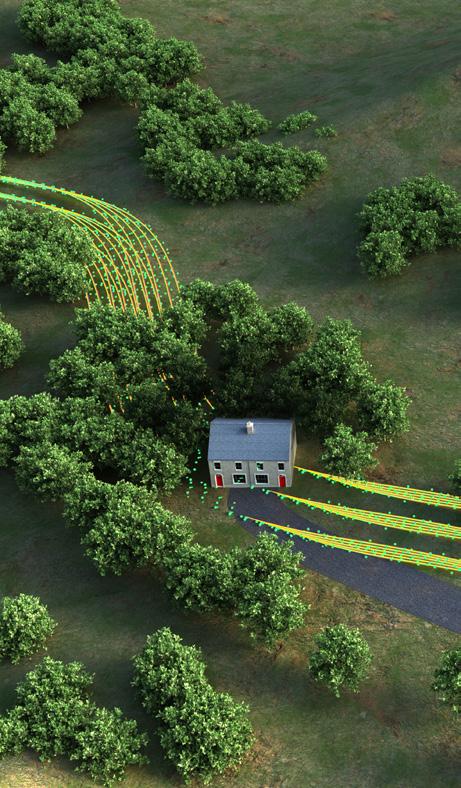
In 2024, Green Lab expanded its research engagement activities and launched a number of new interdisciplinary projects aimed at informing sustainability practices within industry and strengthening sustainability law and policy.
Green Lab initiated the new Monash Nature Positive Network, a multi-disciplinary network of leading researchers developing new research and engagement projects designed to address some of the critical policy challenges associated with the global nature positive goal. Our webinar series on climate change adaptation is building new relationships with leading scholars in the United States and China, and attracting adaptation practitioners from government and industry. Drawing on our strong collaborations on circular economy, Green Lab was a key contributor to Monash’s submission to the recent Productivity Commission Inquiry into the Circular Economy.
Green Lab’s interdisciplinary Net Zero Nature Positive Companies project is now well underway, tracking and evaluating the responses of Australian companies to regulatory pressure to align with global climate and biodiversity goals. In a new collaboration with Monash Sustainable Development Institute, Green Lab members have also explored the role of taxation measures in supporting circular economy in
Australia, submitting our findings to the federal government’s Circular Economy Ministerial Advisory Group.
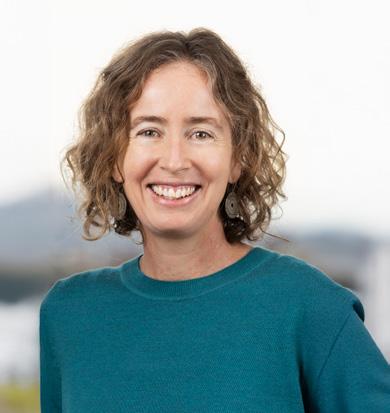
Associate Professor Anita Foerster Director, Green Lab
NET ZERO NATURE POSITIVE AUSTRALIAN COMPANIES
This project tracks and evaluates how Australian companies respond to evolving climate and biodiversity regulatory frameworks.
Phase 1 of the project produced a comprehensive regulatory mapping report, shared with stakeholders and presented at academic conferences and webinars.
Key achievements include the publication of Net Zero, Nature Positive Australian Companies – The Evolving Regulatory Context, which has informed law and policy reform submissions and supported engagement with industry bodies to improve corporate environmental strategies.
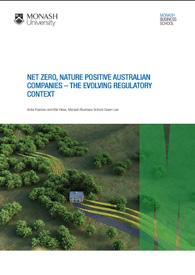
This project investigates changes to Australia’s taxation system to encourage businesses to adopt circular economy practices. It evaluates international taxation frameworks, particularly in Europe, and explores how these approaches can be adapted to the Australian context. Key insights identify practical pathways for leveraging tax incentives to promote resource efficiency.
The project is ongoing. Early outputs include submissions to the Commonwealth Government’s Circular Economy Ministerial Advisory Group, resulting in key recommendations being cited in the group’s final report. The project also contributed to Monash University’s submission to the 2024 Productivity Inquiry into the Circular Economy in Australia.
Funded by the ACT Government Office of Nature Conservation, this project provides expert advice on proposed reforms to the ACT’s Nature Conservation Act 2014. Green Lab’s contribution focuses on designing mechanisms that incentivise biodiversity conservation on rural leasehold land in the ACT.

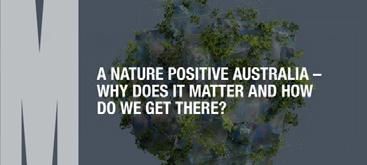
September – October 2024
This three-part webinar series, co-organised by Green Lab and the Monash Nature Positive Network, examined scientific insights, policy frameworks, and behavioural drivers that influence achieving a naturepositive Australia. The series attracted leading researchers, industry experts, and policymakers, providing a platform to discuss strategies for embedding biodiversity goals into corporate and legislative frameworks.
The webinar series successfully facilitated knowledge sharing between academics, policymakers, and industry practitioners, supporting informed pathways toward nature-positive outcomes in Australia.
Recordings of the webinars are available here
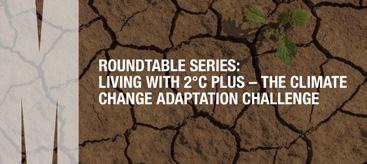
LIVING WITH 2°C PLUS – THE CLIMATE CHANGE ADAPTATION CHALLENGE
November 2024 – March 2025
This roundtable series, co-organised with the US National Academy of Public Administration (NAPA), explored critical adaptation challenges in a world exceeding 2°C warming. The first roundtable examined institutional efforts to implement and track climate adaptation strategies, exploring key outcomes from COP29 and UNFCCC initiatives. The second roundtable focused on extreme weather events, flood risks, and stormwater system resilience, highlighting alternative solutions and the need for broader community engagement. The final roundtable explored the growing impact of climate risks on insurance, addressing rising premiums, uninsurable regions, and the role of government intervention.
This roundtable series offered a critical platform for dialogue on climate resilience and adaptation, helping shape the strategies needed to navigate a warming world.
Recordings of the webinars are available here
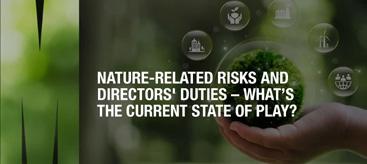
17 February 2025
This webinar, presented by the Monash Nature Positive Network in collaboration with the Centre for Commercial Law and Regulatory Studies (CLARS) at Monash University’s Faculty of Law, explored the rising significance of nature-related risks for company directors. Speakers included barrister Zoe Bush (Banco Chambers) and experts from the Australian Institute of Company Directors and King & Wood Mallesons. The session examined how naturerelated risks impact corporate governance and directors’ legal responsibilities. Moderated by the CEO of ClimateWorks Centre Anna Skarbek, the webinar offered practical guidance for integrating naturepositive strategies into risk management frameworks to meet corporate law obligations and enhance resilience. The session provided valuable insights for Australian directors navigating environmental risk management in response to evolving legal expectations.
Recording of the webinar is available here.

The Mutual Value Lab (MVL) helps organisations to measure the social impact of social businesses. The lab’s long-term partnership with the Business Council of Co-operatives and Mutuals (BCCM) is investigating how social care co-operatives can provide alternative models of aged care to address aged care shortages. The program evaluation of The One Box has enabled it to continue to scale its program to address the growing problem of household food insecurity in Australia.
New engagements were developed this year with a commercial strategic software consultancy and with the Northern Territory’s Anti-Discrimination Commissioner and his office.
MVL conducted scoping workshops with the NT Anti-Discrimination Commission to evaluate the implementation of new anti-discrimination legislative provisions related to positive duty (PD) requirements.
I would like to thank Professor Matthew Hall for his contributions and support as the research lead in advancing the Mutual Value Lab’s research and impact. I would also like to acknowledge the work and support of Professor Ralph Kober and Dr Maleen Gong in The One Box research program.
Looking ahead to 2025, we are excited to build on this foundation by exploring new collaborations and projects that align with our focus on social impact, mutual value creation, and cross-sector engagement.

Funded by BCCM via the Australian Government, this project explores the role of co-operatives in aged care by establishing startup co-operatives in rural, regional and remote Australia. This project is developing a prototype Shared Services Co-operative, which provides administrative support services for aged care co-operatives and providers. The Mutual Value Measurement (MVM) framework is used as a strategic tool to guide development of these startup cooperatives, ensuring they deliver measurable social value outcomes.
The use of the MVM framework as a strategic tool has supported the successful establishment of 13 aged care co-operatives.
In the 2025/26 Federal Budget, further funding of $2.4 million has been allocated to extend this program.
For more information, visit BCCM Care Together
Type of partnership: Government
Mutual Value Lab conducted scoping workshops on evaluating the implementation of new anti-discrimination legislative provisions related to positive duty (PD) requirements. These requirements mandate organisations to demonstrate proactive efforts to prevent discrimination on the basis of sex, race and disability. Future research will focus on industry organisations and the Commission to further these efforts.

Mutual Value Lab has collaborated with The One Box on a series of impact measurement research projects to support its innovative food relief model. The partnership has enabled The One Box to measure and communicate the social impact of its program, which provides fresh, nutritious food to approximately 2,500 Australian families each week – primarily through schools.


This award-winning collaboration has strengthened The One Box’s ability to engage with philanthropic foundations and donors by demonstrating its outcomes. It has also provided valuable insights to
participating schools on the broader needs of families – such as mental health, wellbeing, employment, and community connection – helping them identify additional support pathways for beneficiaries.
For more information, visit www.theonebox.org.au

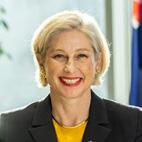
“Our partnership with the Mutual Value Lab has enabled The Business Council of Cooperatives and Mutuals (BCCM) to co-develop the globally awarded and recognised Mutual Value Measurement (MVM) framework, which has been adopted by co-operative and mutual enterprises in Australia, UK and the US.
The lab brings expertise in measurement and evaluation to our sector and also provides a conduit for the sector to access broader capabilities in the globally renowned Monash Business School.”
Melina Morrison CEO, Business Council of Co-operatives and Mutuals
DEAN’S AWARD FOR RESEARCH ENGAGEMENT AND IMPACT
For impactful research collaboration with The One Box, recognised for improving food security outcomes for Australian families.
THE VICE-CHANCELLOR’S AWARD FOR EXCELLENCE IN RESEARCH ENTERPRISE AND/ OR COMMERCIALISATION
Nominated for the development of the Mutual Value Measurement (MVM) framework – a transdisciplinary $1.1 million research collaboration with the Business Council of Co-operatives and Mutuals (BCCM).
THE VICE-CHANCELLOR’S AWARD FOR EXCELLENCE IN RESEARCH ENGAGEMENT AND IMPACT
Special commendation for The One Box research collaboration, tackling food insecurity in Australian communities.

2024 has been a year of pleasing progress towards Opportunity Tech Lab’s mission of creating equitable economic opportunities for neurodivergent individuals, people with disabilities, and other underrepresented groups.
A major highlight has been the expansion of VR-ELOVATE (Virtual Reality Editor Leveraging Opportunity Tech Lab’s Virtual Assets for Training and Education), an innovative accessible platform that exemplifies our commitment to co-designed, scalable solutions that create real-world impact. This innovative virtual reality (VR) tool allows anyone – including people with disabilities – to create and experience immersive workplace simulations. Disability service providers can easily customise training for both technical and social skills, helping individuals overcome employment challenges in a safe, virtual environment. By bridging the accessibility gap, VR-ELOVATE opens doors to meaningful employment opportunities previously out of reach.
We have also advanced research in financial inclusion, early warning systems for vulnerable communities, and Indigenous-led economic initiatives, securing multiple competitive grants, including a grant from the Monash University Incubator Build Program. These projects reinforce our mission to bridge the gap between academic research and practical, high-impact solutions.
Collaboration remains central to our work. This year, we strengthened partnerships across government, industry, and academia, ensuring our innovations remain evidence-based, ethically sound, and practically implementable. As we look ahead, we invite researchers, policymakers, and industry leaders to engage with us in shaping a future where technology enables inclusive economic participation for all.
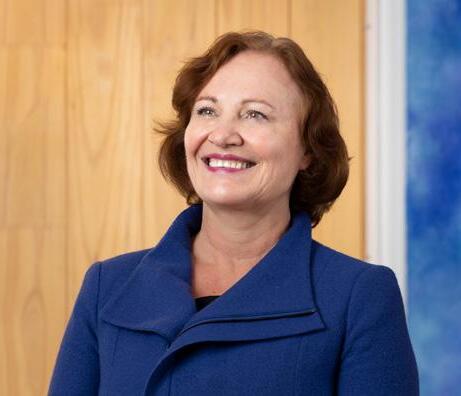
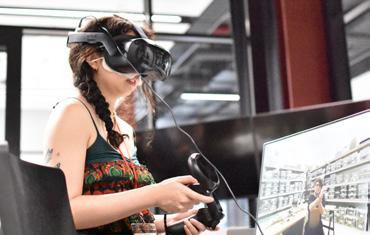
VR-ELOVATE is a virtual reality-enabled learning platform designed to enhance employment access, workplace inclusion, and skills training for neurodivergent individuals and people with disabilities. VRELOVATE enables interactive, immersive job training and fosters inclusive workplaces by educating co-workers and employers through experiential learning.
Key Achievements:
• Co-designed customisable, drag-and-drop accessible VR tool for developing inclusive programs.
• Established supportive partnerships with disability providers to support commercialisation pathways.
• Piloted the platform with early adopters, demonstrating inclusive learning design.
This project in collaboration with the Bank of Fiji focuses on developing digital tools that provide early warnings for climate-related disasters, specifically tailored to vulnerable communities in Fiji. By integrating inclusive design principles, the system addresses accessibility challenges faced by people with disabilities and those with low digital literacy. Funded by the Monash Incubator Program, the project aims to improve community preparedness and resilience in vulnerable regions.
Key Achievement:
• Established partnership with local disaster management and disability agencies in Fiji.
• Awarded Monash Incubator Build Grant.
This project pioneers the development of financially inclusive digital tools that ensure people with disabilities have equal access to banking and financial services. The research examines barriers to digital finance and provides inclusive software recommendations for banks and fintech providers.
Key Achievements:
• Created a framework for disability-inclusive financial technology design.
• Engaged with banking institutions and fintech leaders to integrate findings into product development.
genU
Type of partnership: Industry, Community
OTL developed a partnership agreement with genU to co-design VR-ELOVATE modules with disability support organisations and conduct workplace trials to assess the platform’s impact on training outcomes. The partnership has generated strong industry interest, providing letters of support for grant submissions, supporting the VRELOVATE’s broader adoption and expansion.

Type of partnership: Industry, Community
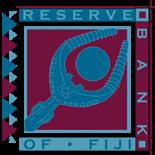
OTL collaborates with Wallara to co-design VR-ELOVATE modules in partnership with disability support organisations. The collaboration includes submitting grant proposals and conducting workplace trials to measure the impact of VR training. The partnership has driven strong interest in scaling VR training and enhanced opportunities for securing external funding.

Type of partnership: Industry, Community
OTL collaborates with Waverley Social Enterprises to co-design VR-ELOVATE modules with disability experts and individuals with lived experience. The partnership involves joint grant submissions aimed at developing and trialling inclusive VR training solutions. It has generated strong industry interest, provided letters of support for grant submissions, and increased the potential for external funding.

“genU Training has had the privilege of collaborating closely with the Opportunity Tech Lab R&D team over the past year, and we have been consistently impressed by their innovative work and commitment to enhancing assessment and training in the disability employment sector.
The research led by Professor Härtel and her team is not only highly inventive, but also possesses substantial potential for social and commercial impact. Their development of VR-ELOVATE has shown remarkable progress and holds the promise of addressing critical challenges and achieving the recommendations outlined in Volume 7 of the Disability Royal Commission in relation to inclusive education and inclusive employment.”
Dan Gavin
National
Manager
of Disability Employment, genU Training
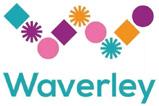
23 – 24 July 2024
At the 2024 NDS Disability at Work Conference in Sydney, OTL engaged with disability employment service providers, the National Disability Services (NDS), government, and philanthropy to explore the potential of VR-ELOVATE in creating scalable, sustainable employment opportunities for individuals with disabilities.
OTL’s participation strengthened partnerships with disability service providers and industry leaders, advancing VR-ELOVATE’s development.
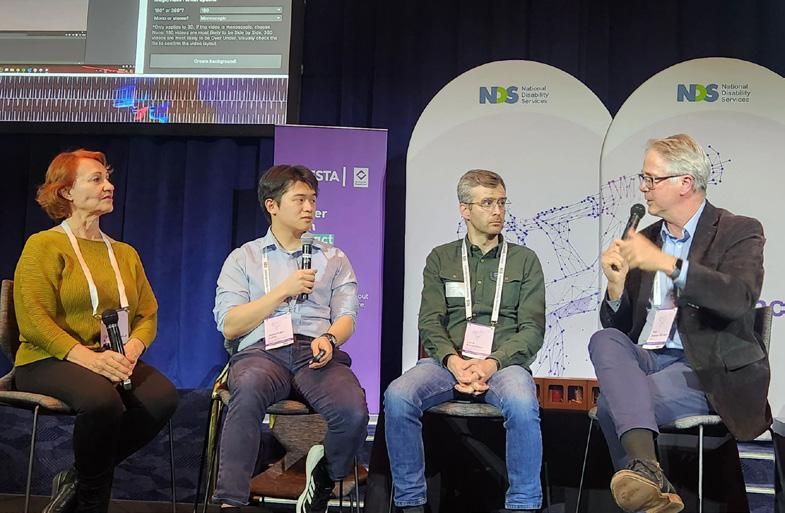

In 2024, SoDa Labs grew further towards its ambition to be the leading computational social science pure and translational research lab in Australia. Our flagship global-scale measurement platform, the Monash IP Observatory, again delivered millions of daily data-points on internet anomalies to the United Nations, and provided further analysis and insights on several major international human rights matters. We released a major update to Astro, equipping it with the latest AI technology to provide rich capability mapping and analysis of Monash’s vast research knowledge base, and welcomed a number of other Australian universities on board to trial the system for potential application in their institutions. And, we further expanded our activities in the geopolitical security space, with our participation in a new multi-year National Intelligence & Security Discovery Research Grant (NISDRG) scheme project concerning conspiracy and extremism, and our active engagement with the Commonwealth government’s Strengthening Democracy Taskforce. Alongside these achievements, we welcomed two new postdoctoral researchers, celebrated PhD student completions, and published a wide variety of empirical and theoretical research intersecting social science, machine learning, and artificial intelligence.
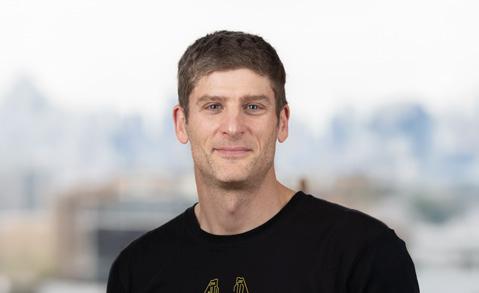

The Monash IP Observatory is a large-scale data initiative that monitors global internet disruptions, censorship, and information blackouts. Data collected is used to support human rights investigations and policy interventions by international bodies, including the Office of the United Nations High Commissioner for Human Rights (OHCHR). The platform provides real-time insights into network anomalies and digital suppression events. Making over 3 billion observations per day from over 400 internetconnected end-points worldwide, the Observatory has an unparalleled view of internet anomalies, at global scale.
The Endangered Generation?
Documentary Outtakes
Astro is an advanced AI-powered semantic search tool developed by SoDa Labs to assist users to navigate vast scientific knowledge domains. Designed to enhance research discovery within Monash University’s Pure research database, Astro enables automated discovery, clustering, labelling, and output generation using natural language queries. By leveraging cutting-edge natural language processing (NLP) and generative AI, Astro helps researchers efficiently map scientific literature through intuitive prompts, addressing the ‘vast-tiny’ challenges in academic research.
Astro has achieved 226 unique users to date; undergoing commercialisation discussions with external universities. The tool has been integrated with serverless architecture for seamless scalability.
Assistant is a sophisticated AI tool developed by SoDa Labs to streamline academic research tasks. The tool is designed to enhance productivity while maintaining data ethics, privacy, accuracy, and research integrity.
Key features include:
• Multi-Model Access: Use multiple AI models simultaneously.
• Automated Model Selection: Assistant picks the best model for your query.
• Structured Reasoning: Enhances responses with ‘thought’, ‘plan’, and ‘review’ steps.
• Data Privacy: Uses APIs, ensuring user data isn’t used for training models.
• Citation Verification: Checks citations with Semantic Scholar and Google.
• Integrated Research Tools: Includes Google Web Search, Semantic Scholar, and Tavily.
• Early Access to AI Models: Benefits from SoDa Labs’ VIP partnerships.



THE OFFICE OF THE UNITED NATIONS HIGH COMMISSIONER FOR HUMAN RIGHTS (OHCHR)
Type of partnership: International organisation
SoDa Labs has partnered with the OHCHR for several years, supporting its efforts to monitor internet shutdowns, censorship, and digital suppression events. The IP Observatory, developed and maintained by SoDa Labs staff, delivers daily anomaly detection reports and insights that strengthen the OHCHR investigations into digital rights violations.
SoDa Labs delivers 1.6 million rows of data daily, comprising 152 countries and 2,000 regions, contributing to multiple UN human rights inquiries.

Type of partnership: Government
SoDa Labs supported the Strengthening Taskforce through the Democratic Resilience Round Table, hosted by the School of Public Policy at ANU. The lab provided expert insights and conducted commissioned research on AI-driven methods to track narratives of democratic resilience, informing policy-maker’s understanding.

SCANLON RESEARCH INSTITUTE: DEMOCRATIC RESILIENCE
Type of partnership: Not-for-profit
As part of its contribution to the Scanlon Research Institute’s strengthening democratic resilience program, SoDa Labs conducted NLP-based news analysis on key themes related to democratic resilience, by processing thousands of news articles over the past 15 years.

Type of partnership: Not-for-profit
SoDa Labs partnered with the Paul Ramsay Foundation in a multi-year collaboration, contributing to a university-wide project aimed at addressing cycles of disadvantage across Australia. The lab developed a report, comprising six research articles alongside four visualisation tools and prototypes.

KASPR DATAHAUS PTY LTD
KASPR Datahaus is a commercial spin-off from SoDa Labs that specialises in alternative data analytics for finance, security, and public policy sectors. By leveraging advanced AI and big data processing, KASPR provides real-time insights.
KASPR successfully graduated from the Monash Business School’s Creative Destruction Lab program and represented Monash at ADSTAR24, where it engaged with major technology and investment firms. Plans for 2025 include scaling operations and securing external funding.
Astro offers advanced AI powered knowledge discovery and mapping capabilities at enterprise scale. It is currently accessible to all Monash University staff, with early discussions underway with other Australian universities exploring its implementation to address similar knowledge mapping challenges. Astro’s adaptable framework also enables application across other domains, broadening its potential impact on research discovery and capability mapping.

APPLIED YOUNG ECONOMISTS WEBINAR SERIES (AYEW).
SoDa Labs co-hosted the Applied Young Economists Webinar Series (AYEW) in partnership with the University of Warwick. This platform provides emerging researchers with opportunities to present and discuss economic research. The series promotes dialogue among early-career researchers and PhD students.
16 – 17 September 2024
The Monash-Warwick-Zurich Text-as-Data Workshop is jointly organised by SoDa Labs Principal Investigator Sascha Becker from Monash and Warwick, and SoDa affiliate Elliott Ash from ETH Zurich.
22 – 28 June 2024
SoDa Labs contributed to the 2024 European Association of Environmental and Resource Economists (EAERE) Summer School, which supports students and earlycareer researchers in exploring environmental economics research methods.
